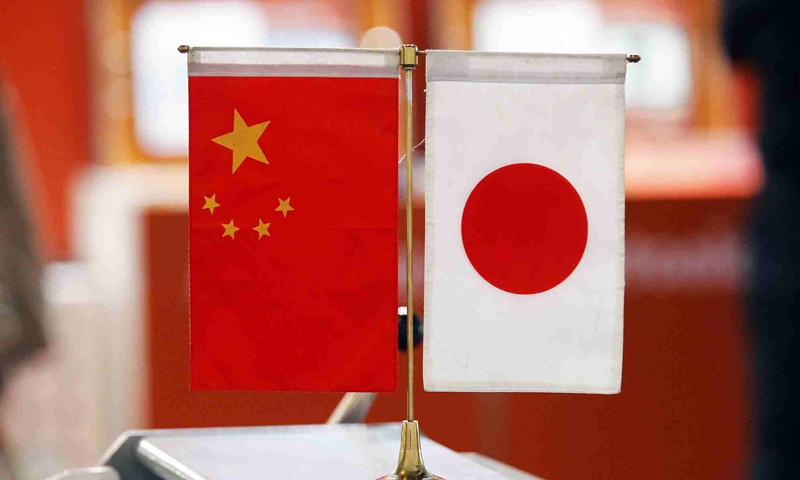Goodwill phone call between Xi and Suga sets tune for future China-Japan relations
By Jiao Kun Source: Global Times Published: 2020/9/25 21:36:04

China Japan
During the Friday phone call between Chinese President Xi Jinping and Yoshihide Suga, Japan's new prime minister elected following the surprise resignation of his predecessor Shinzo Abe, the two leaders agreed to work closely together on international and regional issues. Xi said he is ready to join hands with Suga in playing a strategic guiding role to promote new development in the China-Japan relationship, and Suga told Xi that stable relations between the neighboring countries are "extremely important" for the region at large and the international community.
The Xi-Suga talks to some extent reflect the direction of China-Japan relations. Although Suga raised concerns over the Diaoyu Islands and Hong Kong issues, it's believed the Japanese side knows well that these issues concern China's core interests. The conversation came amid heightened tensions between China and the US, Japan's principal security ally. But the two sides agreed to cooperate on international and regional issues. Japan considers its ties with China as "one of our most important bilateral relationships," Chief Cabinet Secretary Katsunobu Kato, said earlier on Friday at a press conference.
For future China-Japan relations, it's highly likely that Suga will continue the style of his predecessor. He will not take the initiative to make big moves and provocations over sensitive topics between China and Japan. Especially in the context that the balance of power between the two keeps tilting toward China and the dependence of Japanese economy on the Chinese market and industrial chain has increased, it's reasonable to conclude that Suga has displayed a gesture of goodwill to reinforce cooperation with China.
The Suga administration to a large extent is the continuation of the Abe administration. Suga was elected in a parliamentary vote instead of being chosen by Japanese voters. In the process that Suga was selected as Liberal Democratic Party leader, the opinion of heavyweights like Abe played a great role. Therefore, even if Suga has become prime minister for now, it is difficult for him to get rid of the influence of Abe and other influential figures in the party. In other words, the reason why Suga was chosen as Abe's successor is to ensure the continuity of the administration and to avoid major changes in personnel and policies.
It is very likely that Suga will continue the foreign policies of the former Abe administration, only making small adjustments and amendments in some parts. Observers tend to hold that Suga is not good at handling foreign affairs, therefore, it's difficult to expect major changes and breakthroughs in Japan's diplomacy during his tenure.
Generally speaking, Abe took a low-key and cautious attitude to handle China-Japan relations when he was in power. After Abe's visit to the Yasukuni Shrine in 2013 strained China-Japan relations, no similar provocations had been made during his tenure and there were actions taken by him to prevent tension with China.
Abe invited President Xi for a state visit to Japan, which was widely interpreted as a signal that Japan was pushing for closer ties with China.
However, it is worth noting that the overall foreign policy of Japan is still built upon the US-Japan alliance. Few Japanese prime ministers were able to break the constraints of the US-Japan alliance and freely design Japan's political and diplomatic strategy. Suga will be no exception.
In recent years, although Trump's election has brought many uncertainties to the relationship between the US and its allies, there hasn't been a public opinion and political environment formed in Japan that demands the country recalibrate, or even break its alliance with the US, redefine Japan's position and re-design its strategy. Besides, the military integration between Japan and the US has deepened during the Abe administration. Some Japanese politicians also followed in US' steps criticizing China over issues concerning Hong Kong and the COVID-19 pandemic. These are major obstacles that Suga has to face in improving relations with China.
With the intensifying US-China competition and US crackdown on China, the US is pressuring its allies to join an anti-China coalition. It's unlikely that Japan will join such a coalition. However, even if the new Japanese government has the will to improve relations with China, it's very likely to encounter various obstacles and should avoid being pushed to the forefront against China.
The author is a lecturer at the School of History, Wuhan University. opinion@globaltimes.com.cn
Posted in: VIEWPOINT